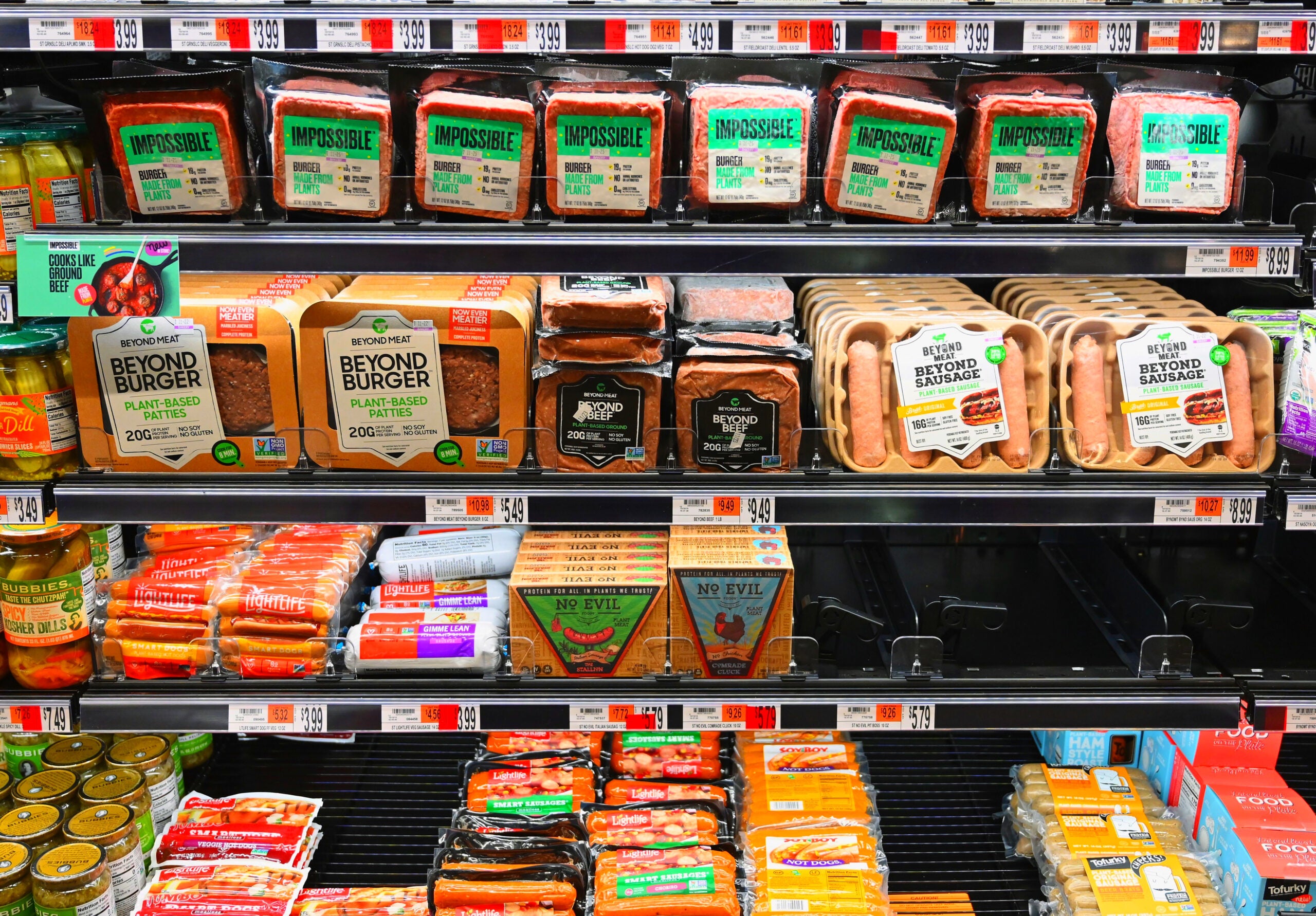What Is an ESG Rating – and Why Are Plant-Based Food Companies Getting Such Bad Ones?

(Photo: Angela Weiss / AFP / Getty Images)
Earlier this month The New York Times published an article asserting that plant-based meat companies like Beyond Meat are getting pretty terrible sustainability ratings from firms like Sustainalytics, which rank all sorts of public companies. Some of the ESG ratings, they reported, were even as bad as carnivorous counterparts like Tyson Foods and JBS.
And yet, everything we know about beef says it is a major contributor to environmental degradation worldwide and far worse than most vegetarian food products. So what’s really going on here? Is everything we thought about the sustainability of a plant-based diet false? Not quite.
What are ESG ratings?
It’s important to understand who the rating firms are and what these ratings are meant to do. In the same way that credit ratings for companies try to capture credit risks, these other values – called ESG ratings – try to capture all the risks to the corporation and its investors that can’t be found on a balance sheet. They look at the environmental, social, and governance factors that could lead a company to financial trouble. That means looking at the environmental impact of a company, but also other things, like their company culture, hiring practices, controversies, and interactions with governments.
Take Tesla, says Florian Berg, a research associate at the MIT Sloan School of Management who focuses on sustainable investing. Tesla makes a much more environmentally friendly product than its peers in the auto industry, but often gets dinged by analysts for its poor company culture and high turnover.
“If your product creates a lot of good impact in the world, as is supposedly with Tesla, it doesn’t mean that you have a good ESG rating,” Berg notes.
And Berg’s own research has found the ratings from different firms, while correlated, can be really different at times. Much of that can be chalked up to different methodologies and what different firms say they value.
So the potential alarm being raised about Beyond Meat and other brands is not exactly coming from environmental advocates, but rather from firms wrapped up in the global financial market. And they look at a lot more than just emissions and land use.
How accurately do ESG ratings reflect sustainability?
While an ESG rating can be a pretty good indicator for sustainability, according to Berg, they are not a perfect analog for real world environmental impacts.
“It could potentially happen that you create a portfolio using ESG ratings,” he says, “and the portfolio they deemed to be ‘sustainable’ emits more CO2 emissions per invested dollar than if you had invested just in the S&P 500.”
Beyond Meat, for example, has a rating of “severe” from Sustainalytics. In contrast, Ford Motors, Exxon Mobil, Royal Dutch Shell, BP, and DuPont Chemicals all have better ratings. Wells Fargo, which fell in hot water for creating millions of fraudulent bank accounts for customers without their consent, also has a better Sustainalytics rating. Electric company PG&E, which has been found liable for multiple devastating wildfires in California, got the “severe” label, yet even it has a better overall score than Beyond Meat.
How do the environmental impacts of plant-based companies compare to industrial animal agriculture?
The Times reported that Sustainalytics analysts want companies like Beyond Meat and Impossible Foods to be more transparent about their supply chains, waste management, and sourcing. Transparency and data are things most consumers probably want to see too, but that doesn’t necessarily mean that Beyond Meat is worse for the environment than a basket of fossil fuel companies or Tyson Foods. In fact, what we do know about food systems and their impacts suggests that animal protein is far worse for the environment than vegetarian sources.
“As an environmental scientist who analyzes the climate impacts of our food production systems and consumption choices, I find this assertion by Sustainalytics – that we don’t know if JBS and Beyond Meat are any different – is absurd,” Matthew Hayek, a professor of environmental studies at New York University, wrote on Twitter.
Years of peer-reviewed research, Hayek continued, show that the impacts from plant protein and fat ingredients are significantly smaller than those from beef, chicken, and pork, even if those impacts aren’t precisely quantified to the degree ESG analysts want them to be.
Indeed, research shows that the rearing of livestock generates 14 percent of the world’s carbon emissions. That’s similar to the total emissions from transportation. Though meat and dairy make up 18 percent of global calories consumed, they use 83 percent of the world’s farmland and cause 60 percent of the total emissions from agriculture. Workers on factory farms in the U.S. often make low wages and can face serious injuries or diseases linked to their jobs.
Plant-based meat companies probably aren’t going to save the world – and do likely have some of their own environmental and labor impacts that we should take seriously. But it’s important to have some perspective about how they compare to other companies, as well how these financial ratings are made and what they mean. Being a vegetarian means pushing our food system to be better. That’s a complicated process, but one we can do when we have the knowledge.
RELATED: Over 100 Beauty and Wellness Brands Are Mobilizing Consumers with ‘CodeRed4Climate’
Get more of what you love from VT. Follow us on Instagram, Facebook, and Twitter and sign up for our email newsletters.